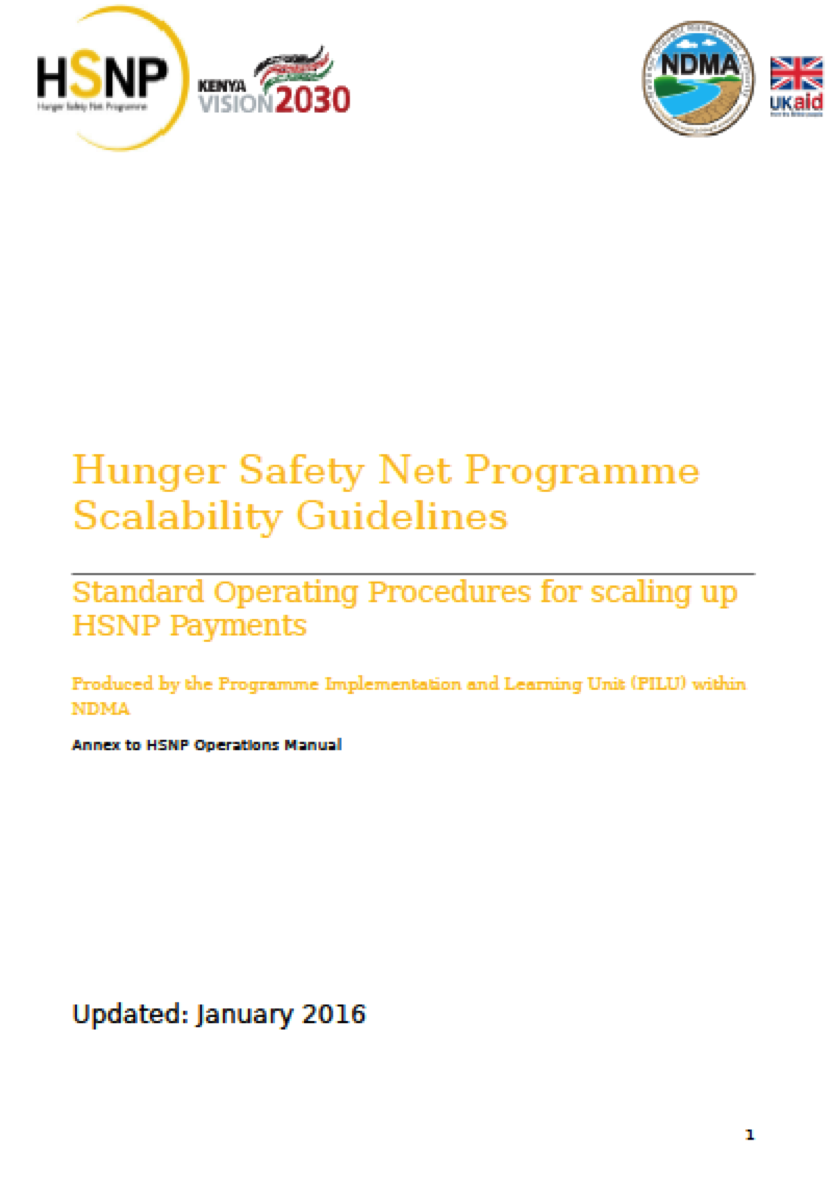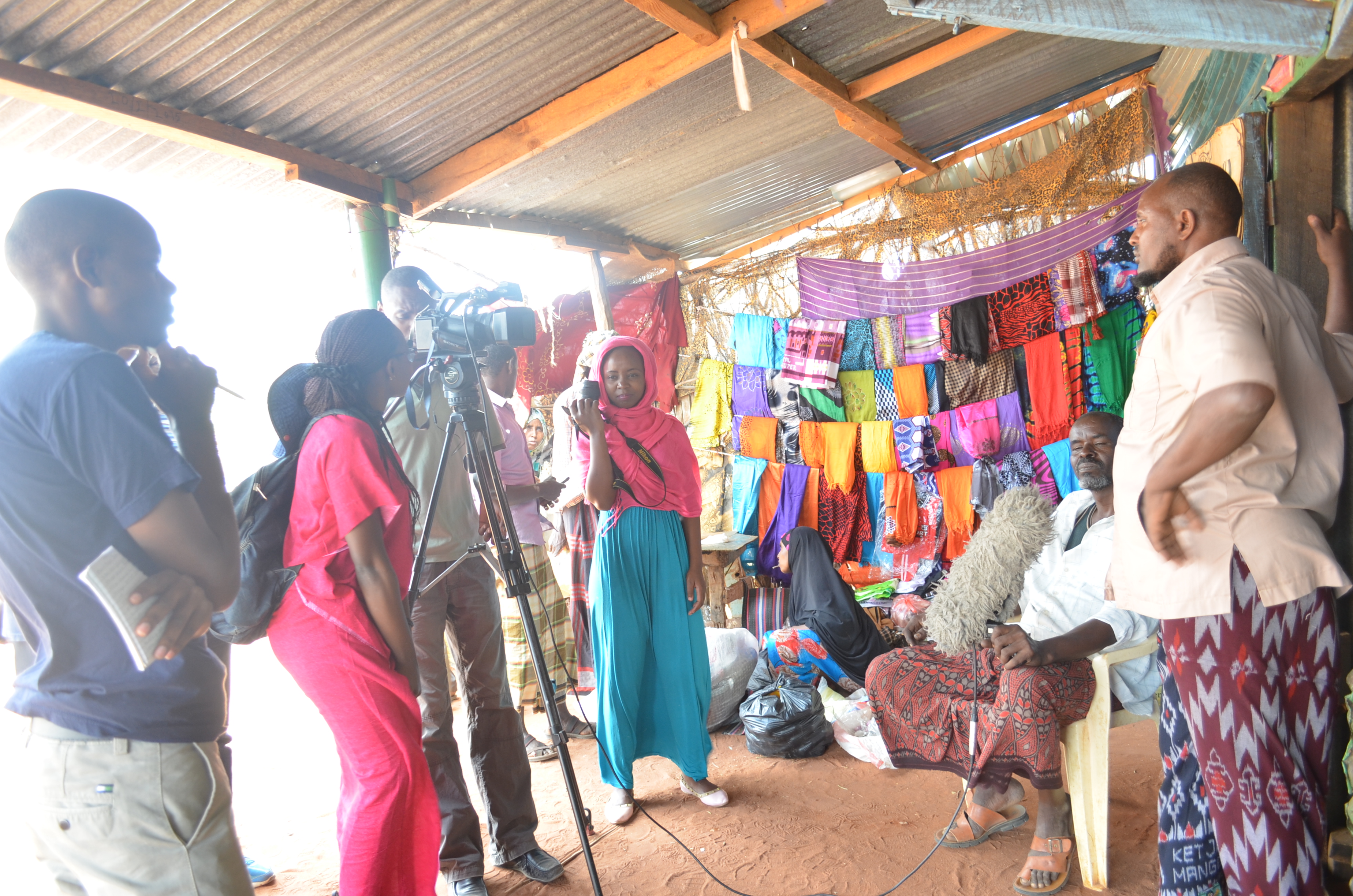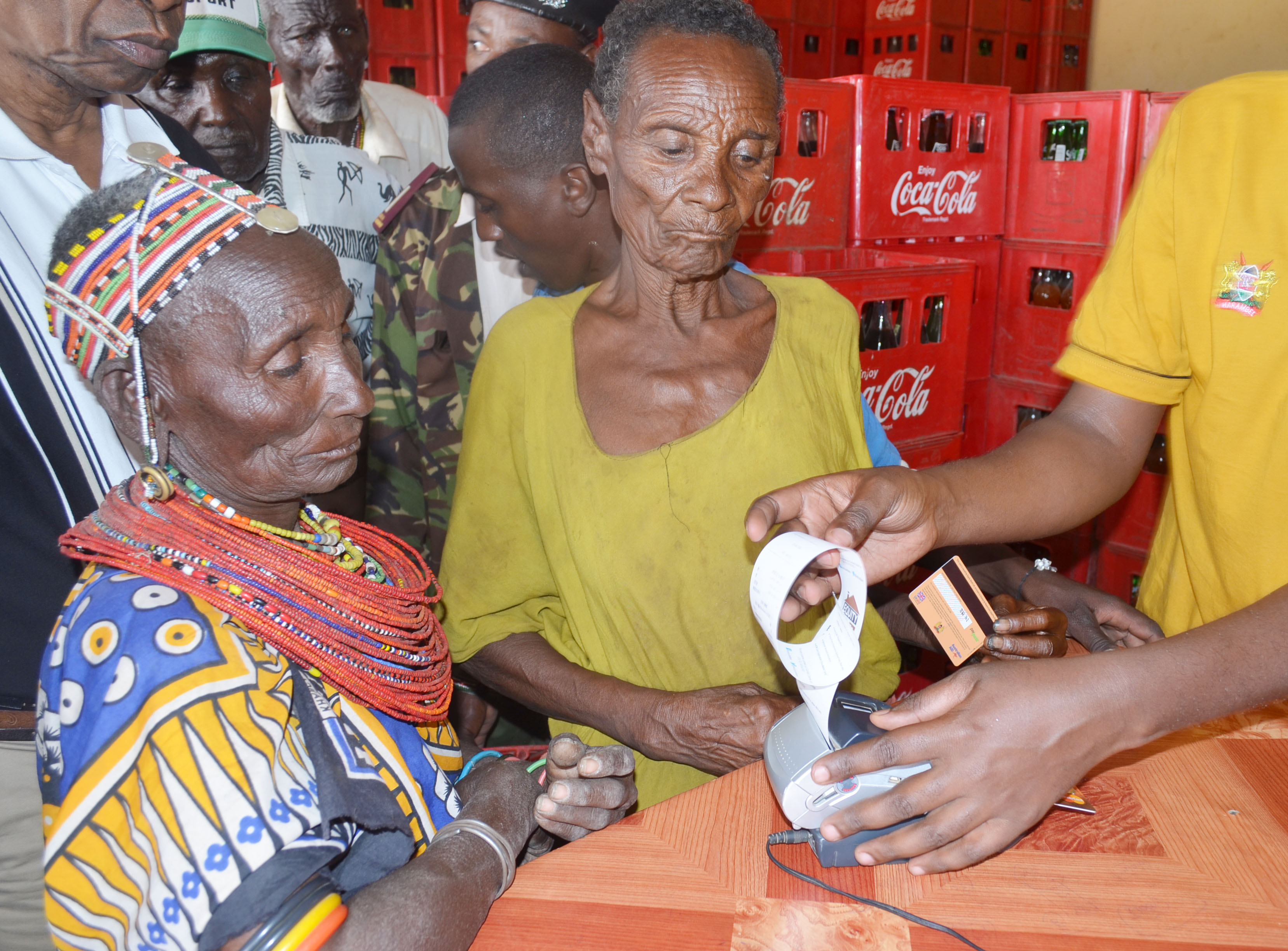 Drought in Turkana
Drought in Turkana
Hunger Safety Net Programme (HSNP) releases emergency cash transfers for drought mitigation and El Niño flood preparedness to over 186,000 additional vulnerable households in Marsabit, Wajir, Mandera and Turkana, says National Drought Management Authority (NDMA)
In an effort to combat the current severe drought and the predicted El Nino floods, the Hunger Safety Net Programme (HSNP) disbursed emergency cash transfers worth Kshs. 488,702,400 to 186,796 vulnerable households in parts of Marsabit, Wajir, Mandera and Turkana. These four counties are among the poorest in Kenya and have been the worst affected by the current drought and are anticipated to be affected by the predicted El Niño flooding. Drought mitigation emergency cash transfers will only be paid in Turkana whereas flood preparedness emergency cash will be paid across all the four Counties as follows:
Drought mitigation payments in response to conditions prevailing in Loima Sub-County during September 2015 were paid on 26th October to 4,852 households in Turkana.
- Flood preparedness payments will be paid on 29th October 2015 to 186,796 HSNP households with active bank accounts but not receiving regular payments. The cash value of the emergency payment is Kshs. 2,550 per household.
- On 5th November 2015, a further Kshs. 562,285,250.00 will also be released to the existing 79,677 households who are currently the regular beneficiaries of the HSNP in the same four counties. The value of HSNP bi-monthly cash transfers is Kshs. 5,100 per household.
- Therefore, in total, during October and November 2015, over Kshs. 1.051 billion will be released to 271,325 households (approximately 1.5 million people). All payments are made electronically directly to beneficiary Equity Bank accounts. Beneficiaries must have a valid ID and active account to be able to receive payments.
 Flooding in ManderaHSNP’s ability to pay emergency cash transfers (CTs) during drought is a key component of the National Safety Net Programme (NSNP). Delivery of emergency cash transfers during floods is a mandate of the Government of Kenya under the National Disaster Operations Centre (NDOC) for mitigating the impacts of El Niño.
Flooding in ManderaHSNP’s ability to pay emergency cash transfers (CTs) during drought is a key component of the National Safety Net Programme (NSNP). Delivery of emergency cash transfers during floods is a mandate of the Government of Kenya under the National Disaster Operations Centre (NDOC) for mitigating the impacts of El Niño.
The emergency cash transfers made on 26th October 2015 represent the first rapid flood preparedness of this kind and at this scale in Kenya and sub-Saharan Africa.
“Timely delivery of cash transfers in response to effects of climatic extremes, such as drought and floods, has proven to be effective. By transferring the payments directly into their accounts, households will be able to improve their access to food and other items and better cope with expected food price spikes. Further, in the case of the predicted El Niño floods, the cash will cushion the household against depletion of their limited assets and better prepare to handle any potential El Niño infrastructure damage. We believe that an intervention on this scale will help cushion thousands of people from the effects of expected heavy rain and massive flooding and from sinking further into poverty,” says James Oduor, CEO of the National Drought Management Authority (NDMA).
HSNP is a flagship programme under the Ministry of Devolution and Planning, managed by the NDMA. HSNP provides regular and predictable cash transfers for up to 100,000 of the poorest and most vulnerable households in its four target counties. It can also deliver emergency payments to additional 272, 478 households registered with HSNP in response to emergencies such as drought and floods.
Poverty levels in the four counties are high and droughts are frequent. Massive flooding during heavy rains is a grim reality in some parts of these four Counties. While HSNP’s contribution will help, as resources are limited, it cannot reach all those in need.
“We therefore urge the County Governments and other partners to work together with HSNP and see how they can support the programme in reaching out to more people,” says James Oduor.
HSNP is part of the National Safety Net Programme (NSNP) and is funded by the Governments of Kenya, the UK (UKAid through the Department for International Development) and Australia (Department for Foreign Affairs and Trade).
ENDS
See below links to the Press release as captured by the Media below:
People Daily Newspaper for 27th October 2015
Daily Nation Newspaper for 2nd November 2015
 HSNP Scalability GuidelinesThis document sets out the objectives, framework and operating procedures to be used by HSNP in scaling up cash transfers (CTs) in response to drought (and other climate induced hazards or crisis ) in the four counties in Kenya where HSNP operates. The Guidelines draw on the on HSNP Scalability Policy and the ‘Options Paper for Scaling Up HSNP Payments’ prepared in March 2015. These documents set out the rationale for the current approach to scalability and how cost modelling was used to narrow down options and approaches.
HSNP Scalability GuidelinesThis document sets out the objectives, framework and operating procedures to be used by HSNP in scaling up cash transfers (CTs) in response to drought (and other climate induced hazards or crisis ) in the four counties in Kenya where HSNP operates. The Guidelines draw on the on HSNP Scalability Policy and the ‘Options Paper for Scaling Up HSNP Payments’ prepared in March 2015. These documents set out the rationale for the current approach to scalability and how cost modelling was used to narrow down options and approaches. 




